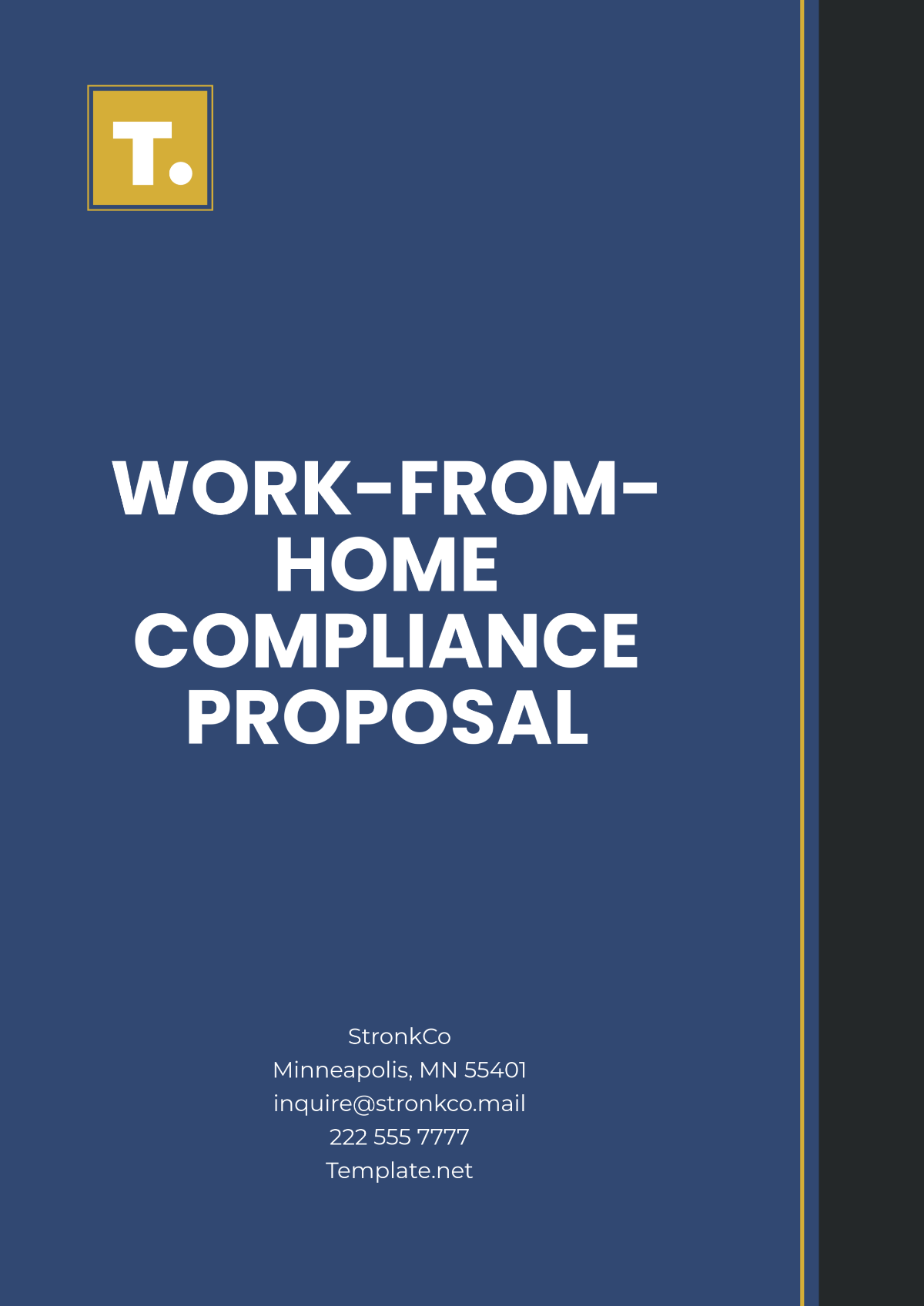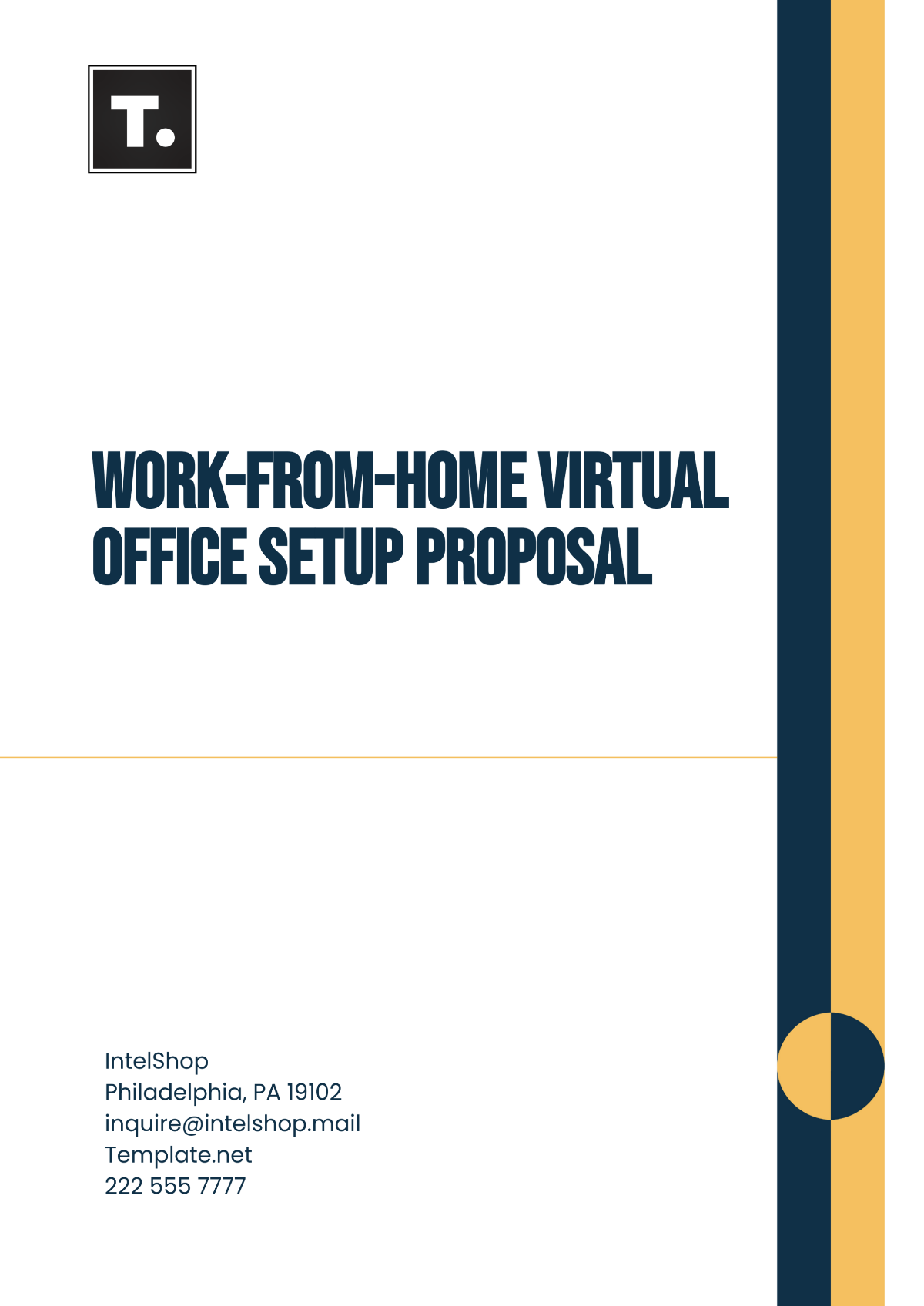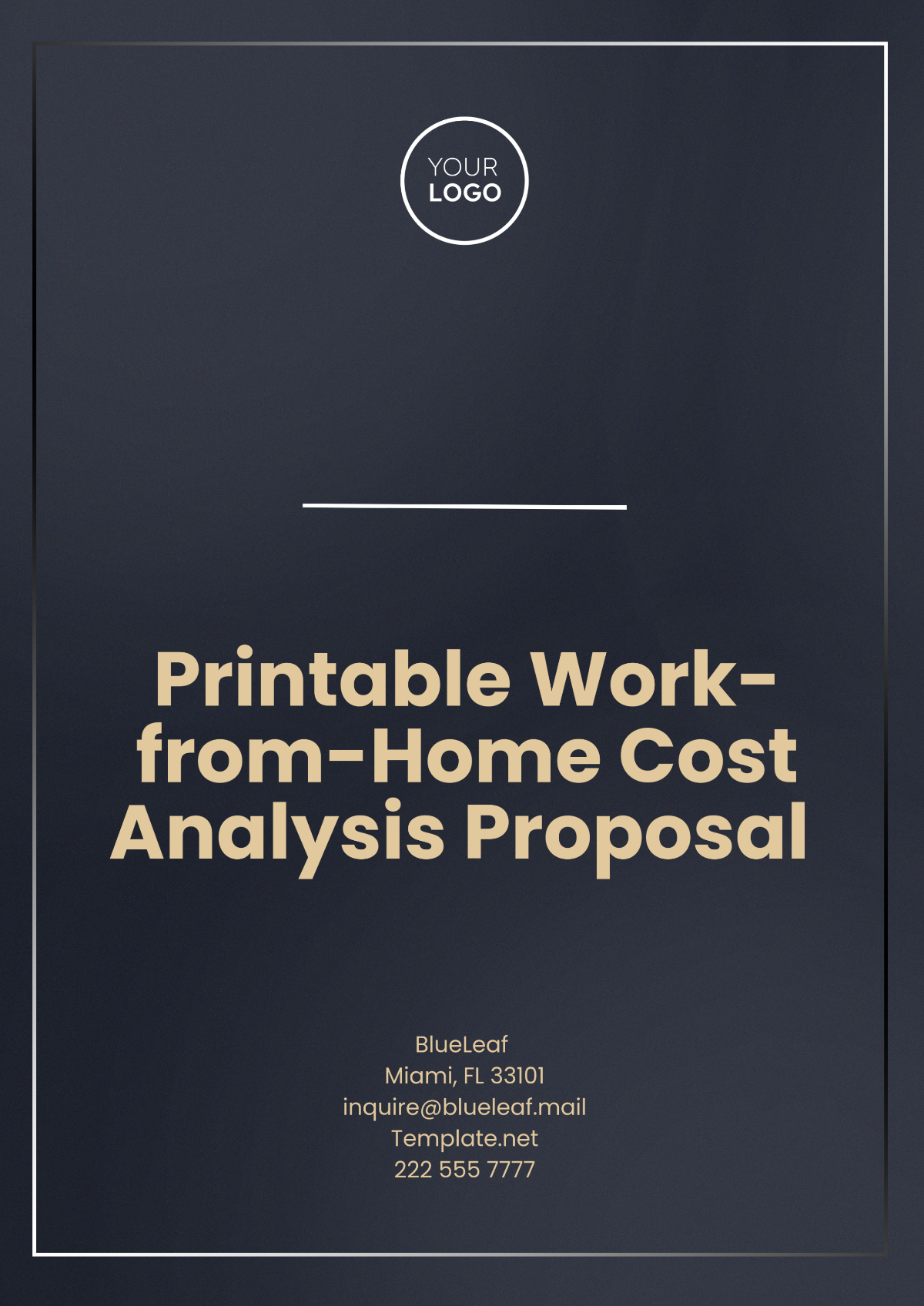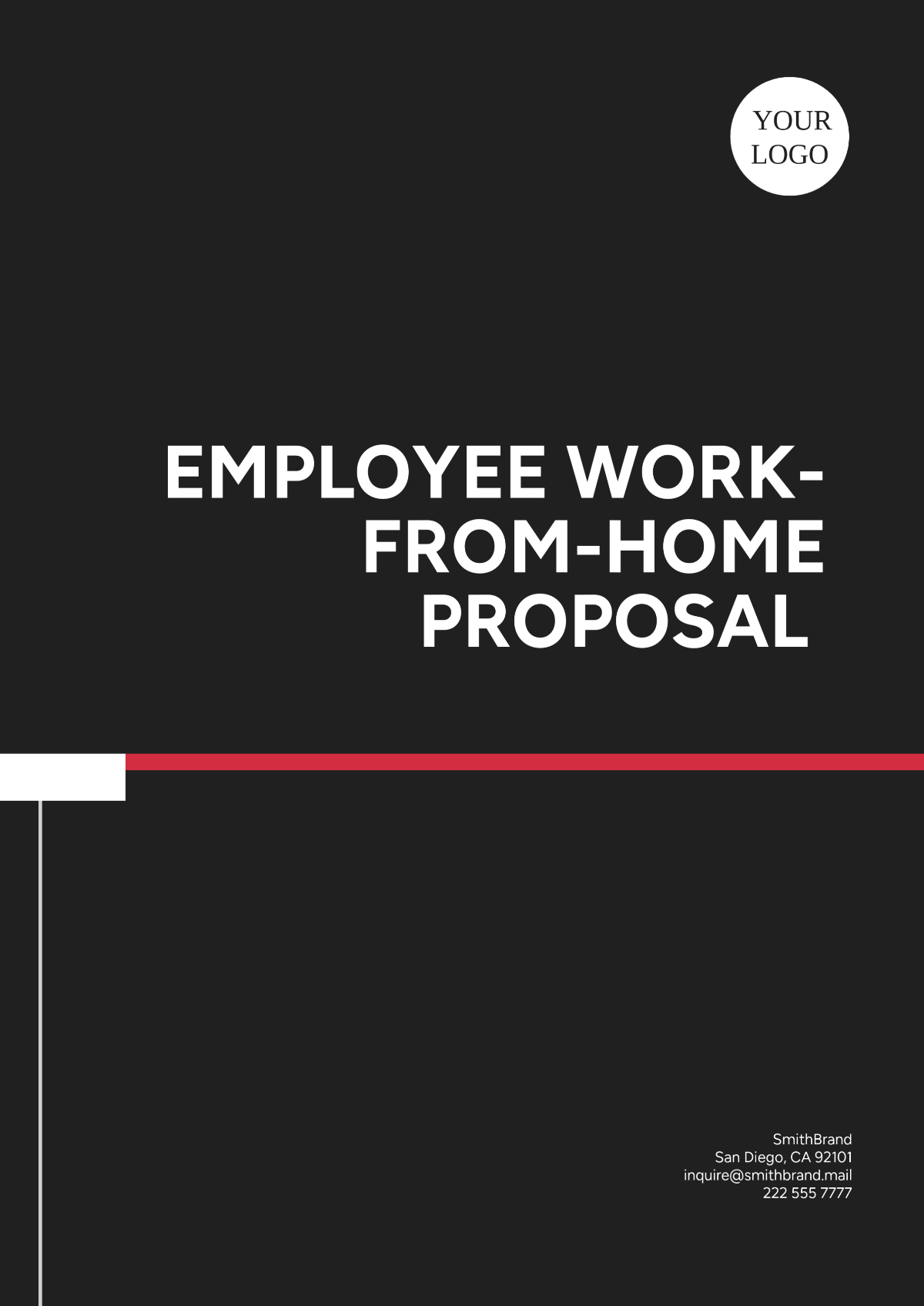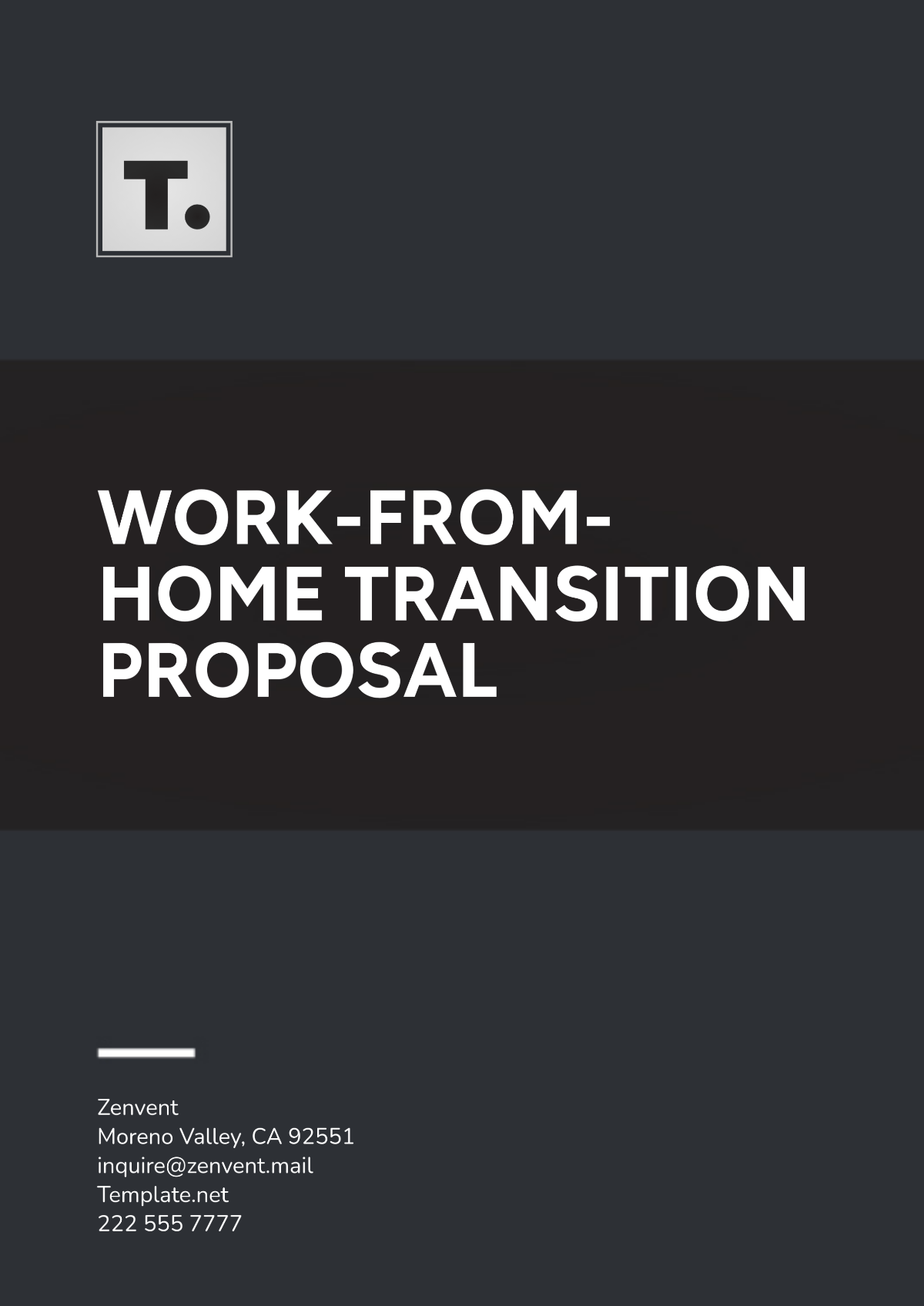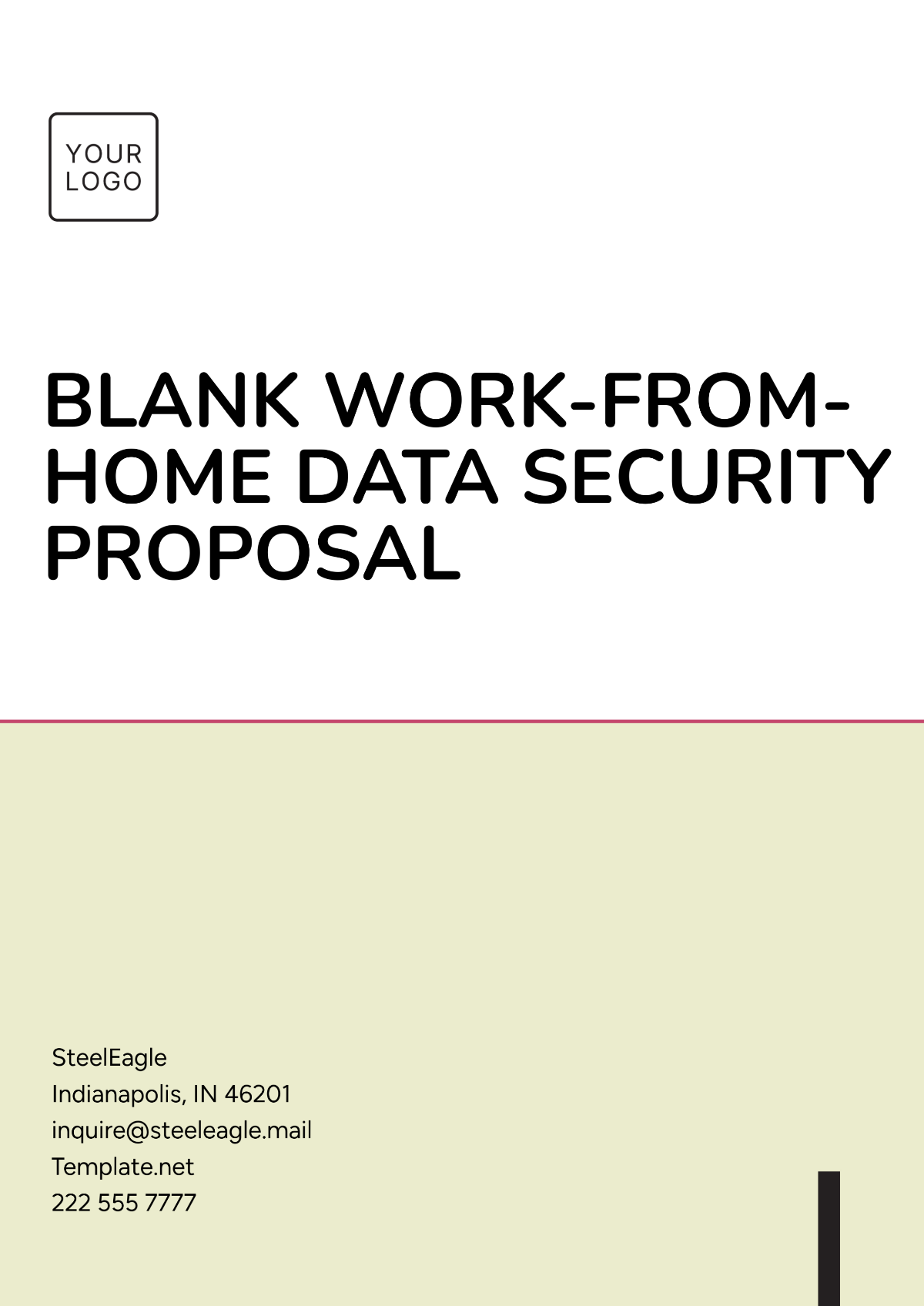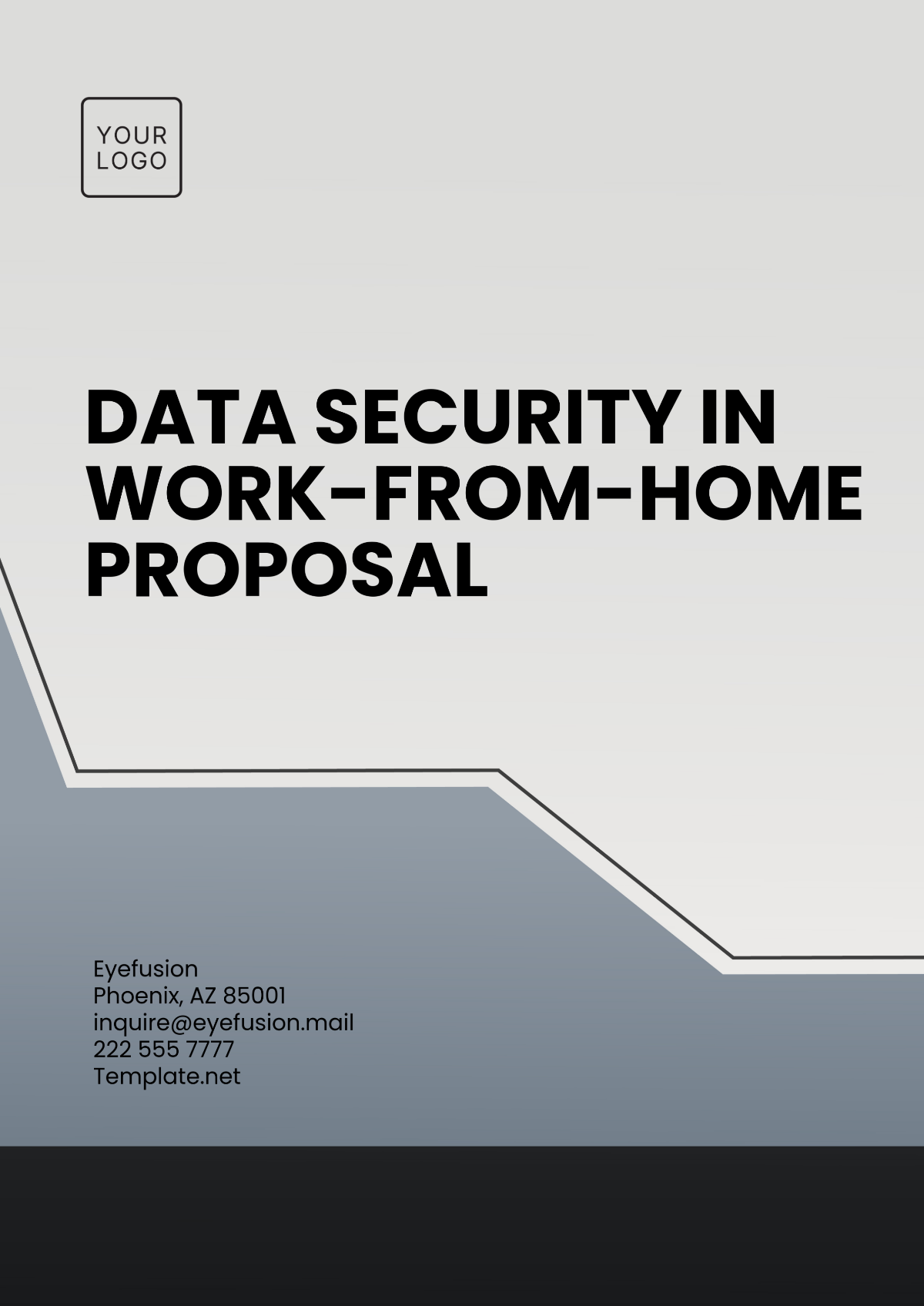Data Security in Work-from-Home Proposal
Prepared for: [Your Company Name]
Prepared by: [Your Name]
Date: January 10, 2080
1. Executive Summary
This proposal aims to address the growing concern of data security for employees working remotely. As work-from-home (WFH) arrangements become increasingly common, ensuring the protection of sensitive business data is critical. The outlined security measures will provide a framework to safeguard data, maintain compliance with legal and regulatory standards, and ensure the continued productivity of employees in a secure environment.
2. Objectives
Protect Sensitive Data: Prevent unauthorized access, use, or disclosure of confidential business information.
Ensure Compliance: Adhere to relevant data protection laws and industry regulations (e.g., GDPR, HIPAA).
Safeguard Company Assets: Mitigate risks related to remote working technology and infrastructure.
Enhance Employee Awareness: Educate remote workers on best practices for secure data handling.
3. Scope of Proposal
The following security protocols will be implemented for remote work environments:
Employee Device Security
Device Encryption: All company-issued and personal devices used for work must be encrypted to protect data in the event of theft or loss.
Antivirus Software: Employees must have up-to-date antivirus software installed and regularly updated on their devices.
Multi-Factor Authentication (MFA): MFA will be required to access company systems and sensitive data remotely.
VPN Usage: A secure Virtual Private Network (VPN) will be mandated for all employees working remotely to secure internet connections.
Network Security
Secure Wi-Fi Setup: Employees must ensure their home Wi-Fi networks are protected with strong passwords and encryption (WPA3 preferred).
Firewall Installation: Personal firewalls must be enabled on remote work devices to block unauthorized access.
VPN Configuration: The company will provide a standardized VPN solution to ensure encrypted communication and data transfers.
Data Access Control
Role-Based Access Control (RBAC): Access to company systems and data will be restricted based on job roles, ensuring that employees only have access to information necessary for their work.
Secure File Sharing: The use of encrypted and secure file-sharing platforms will be required for transferring sensitive data.
Regular Audits: Periodic audits will be conducted to ensure that access privileges are in line with current job responsibilities.
Employee Training & Awareness
Security Awareness Program: Regular training will be provided to employees on data security best practices, including phishing, password management, and social engineering attacks.
Incident Response: Employees will be trained on how to recognize potential security incidents and report them promptly.
Cloud & Application Security
Secure Cloud Storage: All business data should be stored in company-approved cloud services with end-to-end encryption.
Software Updates: Ensure that all applications and operating systems are regularly updated to protect against vulnerabilities.
Access Logging and Monitoring: Use monitoring tools to log access to sensitive systems and track any unusual activities.
4. Timeline for Implementation
Task | Timeline | Responsible Party |
|---|---|---|
Finalize security protocols | [Date] | IT Department |
Employee communication & training | [Date] | HR / Security Team |
Device setup and configuration | [Date] | IT Department |
Implement secure cloud solutions | [Date] | IT / Operations Team |
Regular audits & monitoring | Ongoing | IT Security Team |
5. Budget Estimate
Item | Estimated Cost | Notes |
|---|---|---|
Encryption software | $[amount] | For company devices |
VPN subscriptions | $[amount] | The monthly cost for remote access |
Antivirus & security software | $[amount] | Licenses for employees |
Security training program | $[amount] | Online training modules |
Cloud storage and file-sharing tools | $[amount] | Subscription fees |
6. Risk Assessment & Mitigation
Risk: Unencrypted personal devices could lead to data breaches.
Mitigation: Enforce device encryption policies for all company devices and sensitive data.
Risk: Phishing and social engineering attacks targeting remote workers.
Mitigation: Conduct regular security training and awareness sessions.
Risk: Data access from unsecured networks.
Mitigation: Implement mandatory VPN usage for all remote workers.
Risk: Data loss due to inadequate cloud backup systems.
Mitigation: Ensure all work data is regularly backed up in a secure cloud environment with high redundancy.
7. Conclusion
By implementing the outlined security protocols, [Your Company Name] will significantly reduce the risk of data breaches and ensure a secure remote work environment for all employees. The outlined measures will enhance compliance with data protection laws, protect company assets, and safeguard employee data, fostering a safe and productive work-from-home environment.
Approval
 [Your Name]
[Your Name]








